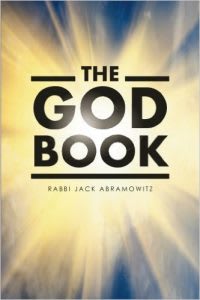19. Moshe's Unique Level of Prophecy
In the Mishneh Torah (Hilchos Yesodei HaTorah 7:6) and his commentary on the Mishnah (Sanhedrin chapter 10), the Rambam gives four ways in which the prophecy of Moshe is different from that of other prophets. He declines to revisit this topic in Moreh Nevuchim as too great a departure from his main subject since the information is readily available elsewhere. For our edification, these four ways are as follows:
(1) Divine messages were only given to other prophets through dreams or visions. Moshe, on the other hand, could receive prophecies while wide awake. We see this, for example, in Numbers 7:89 ("When Moshe entered the Tent of Meeting to speak to Him, he heard the Voice speaking to him").
(2) All other prophets received their prophecies through an angel, with the result that they saw things through metaphors and allegories. Moshe, however, could receive prophecies without an angel. We see this in such verses as Numbers 12:8 ("Mouth to mouth I speak to him") and Exodus 33:11 ("God spoke to Moshe face to face"). Likewise, Numbers 12:8 tells us, "I speak to him clearly and not in riddles."
(3) Other prophets were intimidated and overwhelmed by the visions they experienced but this was not the case with Moshe. Exodus 33:11 tells us that God spoke to Moshe "as a man speaks to his friend" - i.e., without Moshe becoming overcome or terrified.
(4) Finally, other prophets could not prophesize on demand. Moshe was different in that, whenever he desired, God's Presence would rest on him and he could prophesize. His mind was always prepared, so he could prophesize at any time. We see this in Numbers 9:8 ("Stand and hear what God will command you"). Deuteronomy 5:27-28 says, "Go and tell them, 'return to your tents,' but you stay here together with Me." When prophecy left other prophets, they returned to their regular lives. Moshe, however, was perpetually "on duty."
Since the prophecy of Moshe was unique, the Rambam tells us, the only thing it has in common with that of other prophets is the name [II, 35].
That Moshe's level of prophecy exceeded that of his predecessors is apparent from Exodus 6:3, in which God says, "I appeared to Avraham, Yitzchak and Yaakov as God Almighty, but the Name Hashem I did not make known to them." If the prophecy of Moshe was greater than that of the Patriarchs, it goes without saying that it exceeded that of other earlier prophets.
(Moshe was also unique in that he was the first to deliver a message to mankind on behalf of God. [II, 39] Earlier prophets included Shem, Ever, Noah, Methusaleh and Enoch, but none of them delivered commandments from God to man. Even Avraham instructed his contemporaries based on philosophical proofs, not based on "God says...." The same is true of Yitzchak, Yaakov and the other prophets who came in between Avraham and Moshe.)
We see that Moshe's prophecy was greater than that of his successors from Deuteronomy 34:10, "There has not arisen since a prophet in Israel like Moshe, with whom God spoke 'face to face.'" [II, 35]
Just as the prophecy of Moshe exceeded that of other prophets, the same is true of the signs and miracles he wrought as God's emissary. Eliyahu (Elijah) is perhaps the best-known prophet after Moshe. Eliyahu's student Elisha was twice the prophet Eliyahu was. (See II Kings chapter 2. An example of this is that Eliyahu revived one dead person, while Elisha resurrected two.) Despite their greatness, their deeds were only witnessed by a few individuals at a time. Other people had to be told about them "second hand." (See II Kings chapter 8, in which King Yehoram of Israel asked to be informed of the miracles that had been worked through Elisha.) Moshe, however, worked his wonders in front of everyone - both friends and enemies. We previously cited Deuteronomy 34:10 ("There has not arisen since a prophet in Israel like Moshe, with whom God spoke 'face to face'"). The next two verses continue, "who performed all the signs and wonders God sent him to do in Egypt, for Pharaoh, for his officials, and for the whole land. No one has ever shown the great might or performed the awesome deeds that Moshe did in the sight of all Israel." No other prophet before or since ever performed his deeds "in the sight of all Israel." (The Rambam explains that this even excludes Joshua making the sun stand still in chapter 10 of the book that bears his name. Even that miracle was only witnessed by those in the battle of Gibeon.)
These examples serve to illustrate the uniqueness of Moshe's prophecy. The Rambam tells us all this because he is going to continue talking about prophecy. As familiar as Moshe is to us, it's important for us to understand that other prophets were not like him. As we continue examining the phenomenon of prophecy, we must keep in mind that, ultimately, Moshe's prophecy shared a name with that of other prophets but not much else.

